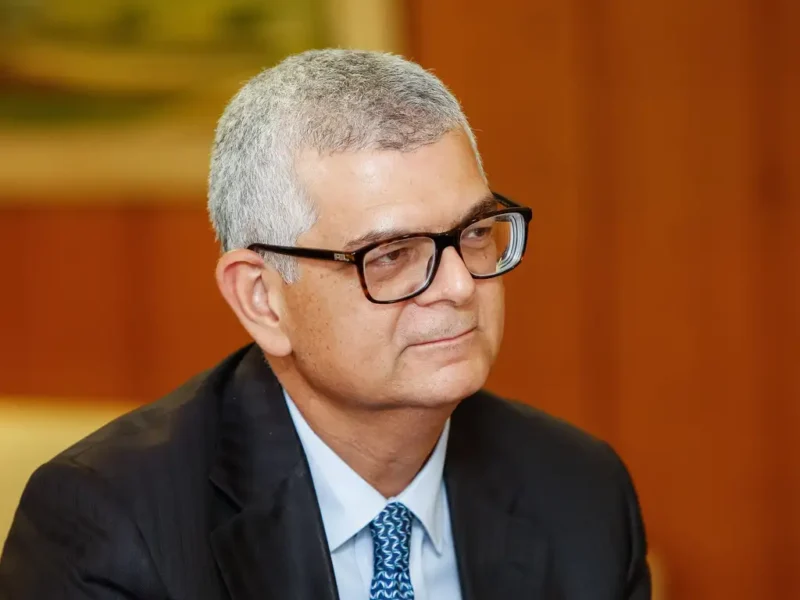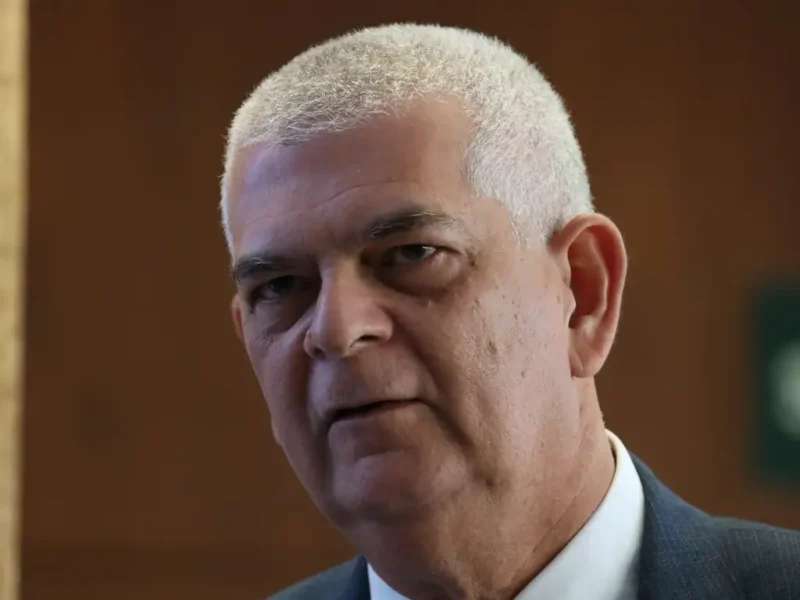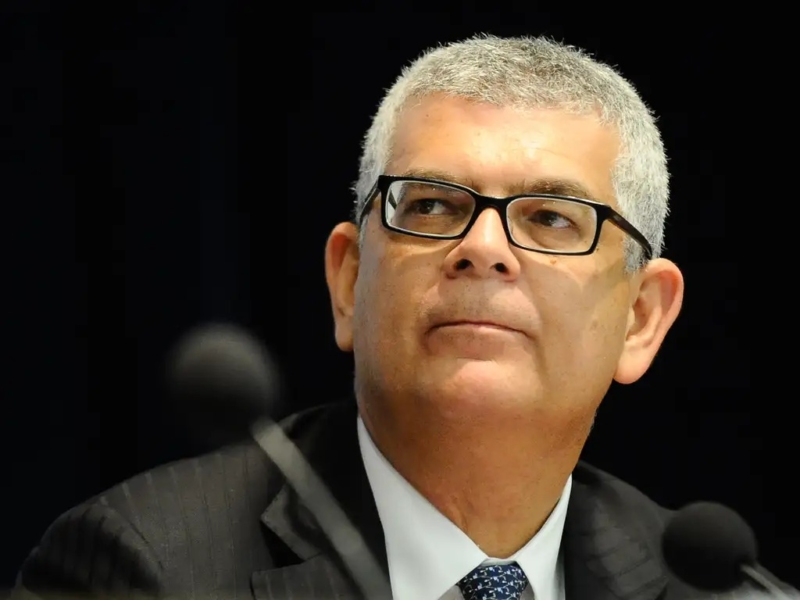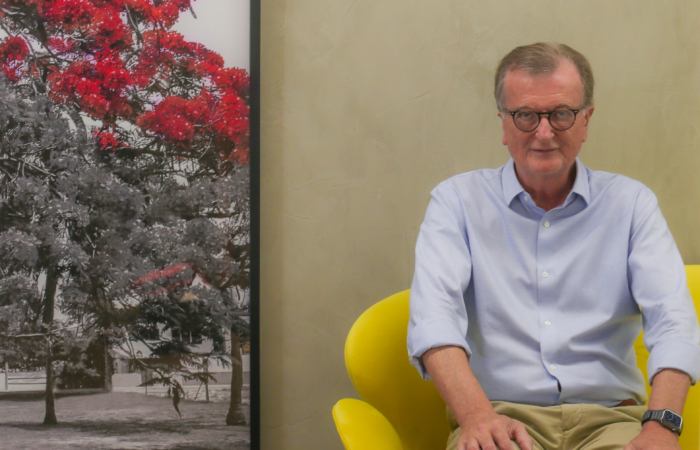
“It doesn’t matter if you are the chairman of the board, the CEO or the doorman who identifies people to access the building. Everyone notices, and reputation is a very important item, it reflects the result of a culture and respect for the environment, people, the community, everything.
This becomes something natural and cultural.”
There would be a huge number of possible topics to discuss with Ivan Monteiro, president of Eletrobras, specifically about the electricity company, privatized in 2022. This time, the Reputation Feed decided to address various aspects of reputation management based on Monteiro's knowledge and efficiency in solving difficult equations.
With a consistent journey, Monteiro made a career in Bank of Brazil, where he reached the position of CFO and later Chairman of the Supervisory Board of BB AG (a subsidiary in Austria). But it was at Petrobras that his name resonated the most. At the oil company, he took on the role of CFO when the company was facing the biggest financial and reputational crisis in its history, due to the corruption scheme involving directors, businessmen and politicians revealed by the Lava Jato operation.
Among the notable achievements in the position are the publication of the balance sheet of the Petrobras (then delayed by months) estimating the costs of corruption until the start of the debt restructuring process. With the departure of Pedro Parente, took over as president of the company. This is just a summary of his career, which also includes stints at Credit Suisse and on the boards of many state-owned and private companies.
Read the main excerpts from the interview below:
Can you point out similarities and differences in relation to looking at the reputation of some of the large companies you have worked for, for example, Banco do Brasil, Petrobras and Eletrobras?
I wouldn't say there is a guideline for working on reputation, but there are characteristics for each sector. I worked at Credit Suisse, which, despite its Brazilian operations being extremely healthy, was going through a major crisis abroad. The client of a wealth manager, like Credit Suisse, doesn't want to see his bank constantly associated in the media with the poor handling of a certain operation, regardless of whether it was carried out in Turkey. The image is affected because the crisis spreads exponentially.
"If your company does not contribute to improving the conditions of all stakeholders, it will not have talent, engaged people and will probably not be competitive and will perish.”
If someone films an event in the most distant, far-off place on this planet, within nanoseconds it will be on everyone's screen. And this has the potential to cause great damage to the company. By the time the company has adequate response time, the damage has already been done, the harm has already been done. In the case of a bank, it is quite dramatic when something bad shakes confidence. In a specific industrial sector, this also applies, but from the point of view of the relationship with the client that you are managing resources, it is not so dramatic, but rather in your relationship with the community, in your city, with your neighborhood, with your country, etc.
For example, today, environmental damage is a set of damages. If you are reducing the greenhouse effect and your carbon footprint, this is very well-received. Otherwise, it is not. Furthermore, let us remember that the big discussion in the world today is a fight for attracting and retaining talent. If your company, and this younger generation is very purpose-based, does not contribute to improving the conditions of all stakeholders, and not only those most directly interested in the results of your company, such as shareholders or executives through the bonus system, you will not have talent, engaged people and, probably, you will be intellectually poor and, therefore, you will not be competitive and will perish. So, to a greater or lesser extent, reputation ends up increasing or dramatically decreasing the competitiveness of your company, regardless of the sector in which it operates.
Are these large companies that are doing everything right, reducing their carbon footprint and retaining talent, for example, getting noticed for this?
If you practice and don't believe, you won't get results. There's no point in me telling you that Eletrobras is a very responsible company regarding the most diverse aspects of ESG or ASG, if you read in the media tomorrow that we mistreated an indigenous community, damaged a river, destroyed a forest, that our employees are dissatisfied because they don't receive dignified and adequate treatment, and that the number of accidents has increased significantly.
Transparency is necessary. But, above all, the certainty that it is useless if it is not authentic. Cell phones are a tool for spreading good and bad news. Stakeholders would quickly realize that the company is fake, does not believe in what it is and uses misleading advertising in its relationship with its customers and stakeholders.
What sustained Petrobras' reputation during the most difficult moments of Operation Lava Jato?
Its real, dedicated and competent employees. (THE scheme) The Lava Jato investigation took place at the top of the company, and several directors were arrested and charged with corruption. The Lava Jato investigation raised compliance to a level that did not exist in Brazil, except in the financial system, which has always been closely monitored by the Central Bank of Brazil, a strict, world-class regulator.
Petrobras' artificial supply and cartel formation scheme showed that compliance data is as relevant to a bank as it should be to a company the size of Petrobras. So, what allowed Petrobras to survive that tsunami was the strength of its employees, the love they have for the company, and the quality of Petrobras, which is a world reference in oil and gas exploration in ultra-deep waters.
As a leader, what lessons did you learn, especially from a reputational perspective, after the work assigned to you to recover Petrobras' finances?
I and many people, with the employees having the greatest participation in the recovery. Obviously, having the privilege of having Pedro Parente (president of Petrobras for two years, from 1.6.2016 to 1.6.2018) as a leader is for few companies. He was there at the most critical moment, with such absurd credibility that he had the capacity for aggregation and motivation to sustain the company in the worst crisis in its history, financial and reputational.
Petrobras employees could not attend baptisms, weddings, or neighborhood parties because if they were recognized as employees, they would be labeled as corrupt. I arrived in February 2015, when the house was on fire. When he arrived, there was no more fire, but everything was destroyed. So he led the company in rebuilding on other bases, with governance protection factors, and in record time.
OK, but you're still there and with a positive reputation too.
Thank God, yes, I had the pleasure of succeeding him, but I only stayed for a short period after he left. But, in any case, the most important element is that Pedro laid the foundations.
“When you are invited to a role like this, you first have to look at yourself and ask: am I up to this challenge? What does it mean to be up to this challenge? Do you understand that the decisions you are going to make are aimed at perpetuity, at the company doing well for the next 30-40 years? If you don’t understand that, don’t take on the role, don’t go work for this company, otherwise you will fail.”

What changed in relation to your role in managing the company's reputation when you went from Chairman of the Board to CEO of Eletrobras?
Reputation is not linked to a CPF, it is linked to all employees of the company, without exception. Regardless of the hierarchical level or position a person holds, they deserve the same respect as anyone else. So, if you, as a leader, have this behavior that is perceived as encouraging, the collective contribution forms the company's reputation.
Shouldn't culture change come from the top?
Building a culture that extols reasonable and desirable values, virtues and qualities in any human being or corporate structure is everyone's obligation.
One of the biggest challenges for a newly privatized company, such as Eletrobras, is defining a new organizational culture. How is this being reflected in the company?
The challenge is immense. We have a history of 60-70 years, of a state-owned company that, through an extremely transparent process, with the law approved by Congress, became a private company and a corporation (without defined control). The process of change has begun, but you can't change a company's culture in half an hour or in six months. Much of this change comes from the employee-employer relationship, because the right culture is one that fosters the meeting of talented and motivated people, who know how to work as a team and see a purpose in this union.
"We are not private equity managers. Here, decisions are made for the next 20-30 years. Based on this, it is possible to build a very strong relationship of trust with our clients. Remember that our clients used to be large distributors and, now, they are end customers.”
A culture that does not prioritize this will not attract professional talent, it will attract competitive behavior. Leadership must understand that, in a company like Eletrobras, a transmission line is built for 40-50 years; a hydroelectric plant, for 40-50 years, sometimes for the rest of its life, and the equipment is replaced, but the structure remains.
“If you want to see me happy, you have to serve someone. I love customers. There’s a whole discussion here: how to communicate with customers, how to make the company focus on them, how to build relationships from the outside in and not from the inside out. The ultimate goal is the customer; providing good service, quality, generating reliability and ensuring that there’s no power outage.”

Power outages are a good example of crisis management, where timing is very important. How can we prevent the problem from getting worse?
First, we immediately know which channels should be activated. We have a vice-presidency of operations and, every time there is an event with a power outage, there is a whole procedure for interacting with the national system operator. In addition, immediately, it is almost in people's DNA, I am activated and so is the communications team. We immediately start not only providing information to the media, but internally we mobilize to have the most appropriate response possible.
We have the Atmos project to forecast adverse weather conditions to check how they will affect our assets and allow for advance preparation. Bulletins are generated two or three days in advance about the possibility of these events, which mobilizes operational teams, equipment inventory and personnel.
In parallel, there is a lot of communication and interaction with regulators. Rio Grande do Sul was an example. We worked very hard to ensure that the event itself, the rain, was not aggravated by the power outage and other already dramatic consequences.
“If an event occurs, a problem like the blackout in Acre and Rondônia, all the tension in the company is immediately turned on. If we make a mistake in the operation, whether it’s a transmission line or a substation, for example, the power goes out in your house in 2 seconds. If the power goes out, the meat and dairy products in the refrigerator will spoil, elderly people won’t be able to use the elevator, and some hospitals without generators will have problems. This is a group that will suffer huge losses due to our failure. So, we joke here that you can do whatever you want, except with security.”
Eletrobras is part of one of the sectors that plays a relevant role in relation to the challenges of climate change and the energy transition. What are the company's plans to be a protagonist in this process?
Of Eletrobras' generation assets, 97% are strictly renewable and we are moving towards around 99%. This is our biggest contribution at the moment. We also contribute to the decarbonization of our customers' industrial processes, seeking solutions to reduce their carbon footprint.
There is also a third aspect, which is attracting investments by supplying energy for the production of, for example, green hydrogen.
. In 2023, Eletrobras made a commitment to the Science Based Targets Initiative to be Net Zero by 2030, reducing at least 90% of total emissions, compared to 2023, and offsetting, at most, 10% of residual emissions.
. The strategy is based mainly on divestment in thermoelectric generation, increase in renewable generation and management of emissions that cannot be reduced using own renewable energy certificates and carbon credits from reforestation actions.
. In 2024, the company divested itself of its thermoelectric plants. In January, it concluded with CGT Eletrosul the sale of the Candiota (RS) coal-fired complex. And recently, in June, together with its subsidiaries Eletronorte and Furnas, the natural gas portfolio.
. Eletrobras' total installed capacity is 44,304 MW, which represents 22% of the total in Brazil.
Source: Eletrobras
What are the main attributes that contributed to your journey as an executive who has held high positions in some of the most important companies in the country?
My father taught me that if I studied hard and worked hard, maybe I would succeed, but if I did neither, my future would be nothing. I apply that to this day. I study hard, work hard, nothing else.
What would you tell a young executive to follow on their reputation-building journey?
May he act like a human being. May he not delegate to the screen, to WhatsApp and to Zoom what is a characteristic of being human, interacting with people.
Christianne Schmitt is editor of the Reputation Feed
Christianne.schmitt@ankreputation.com.br



